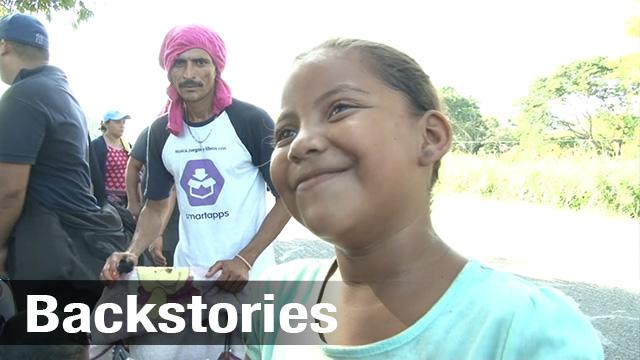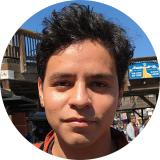“What’s your goal when you reach America?” I asked.
"Be someone important," she said.
She struck me as a sweet, playful girl, sharper than most kids her age.
"If you weren't walking what would you want to do now?"
"Eat," she replied matter-of-factly.
"I don’t have money," her mom said. "I am hopeful that the brothers and sisters down the road will give us tortillas for our kids."
Lydia and her family had not eaten since the previous day and had no money to buy food to eat. They had been walking from their hometown of Catacamas in northern Honduras for 8 days, crossing into Mexico by raft two days prior to our meeting, with their sights firmly set on the US border 1,781 km away.
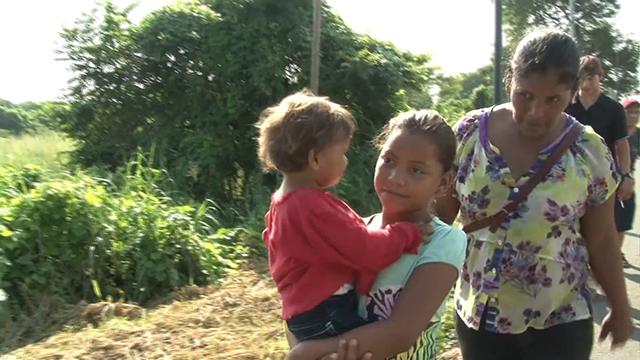
Back home, Lydia’s father worked in the fields and her mother sold bottles she picked up from the street. "We earn 100 lempiras (around 4 USD) a day," her father told me. "We can’t pay for food, for utilities, for books, and for the kids. So we made the decision to come here."
The caravan Lydia's family was part of was made up of 300 to 500 people from Honduras and Nicaragua, mostly young men but with a substantial number of women and children. They walked in the dreadful humidity typical of the region, carrying Honduran flags and chanting, "Long live Honduras and long live Mexico!"
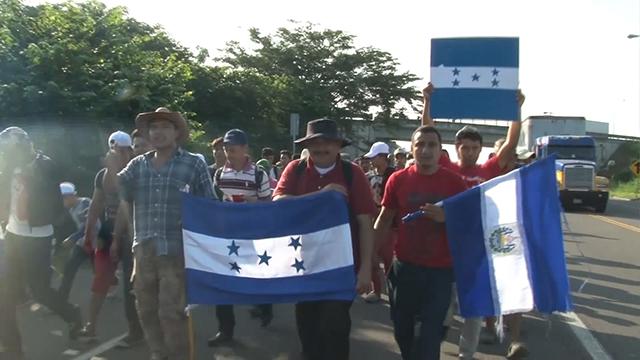
Mexican Civil Protection units escorted the caravan at the front and rear of the group, and yelled instructions through bullhorns, "Stay in the lane and let traffic through!"
And when good Samaritans approached the caravan with food and water, the men in the group would holler, "Women and children first! Women and children first!”
At one point, during a rest, Lydia’s mother was given two flour tortillas and a plate of rice and beans. She gave it to her youngest daughter, Blanca. Lydia would have to wait to eat.
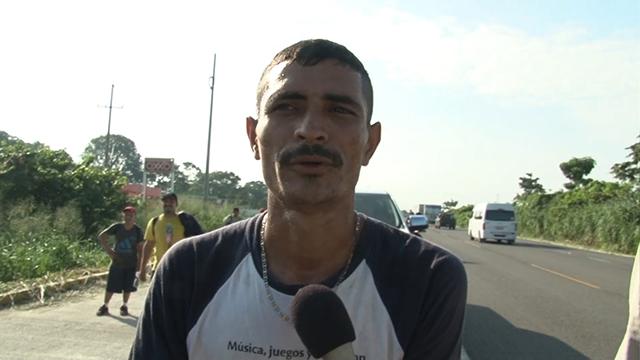
Leading up to the midterm elections, President Trump turned the caravan into his main campaign issue, labelling it an “invasion” and making numerous allegations about the group without providing evidence.
"At this very moment, large, well-organized caravans of migrants are marching towards our southern border," Trump said on November 1. "Some people call it an invasion. It’s like an invasion. They have violently overrun the Mexican border. You saw that two days ago. These are tough people, in many cases."
Days earlier on October 22, he tweeted, "Sadly, it looks like Mexico’s Police and Military are unable to stop the Caravan heading to the southern border of the United States. Criminals and unknown Middle Easterners are mixed in. I have alerted Border Patrol and Military that this is a National Emergency. Must change laws!"
When pressed by a reporter to provide proof for his claims, his response was: "There's no proof of anything.There's no proof of anything. But they could very well be."
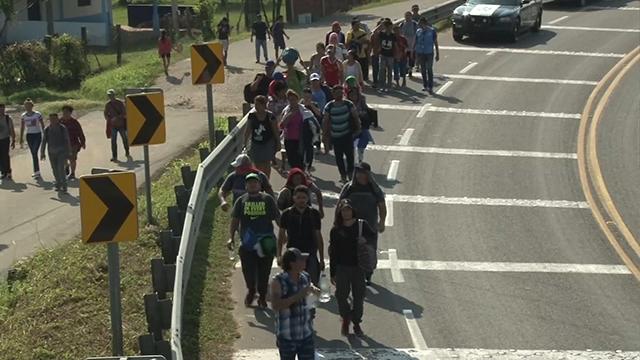
The truth is that it is difficult to say exactly how many people are travelling with the various caravans. (The Mexican government said the number was 5,347 as of November 3.) It is also hard to know how many of these people have criminal histories. (The US Department of Homeland Security identified 270 individuals with criminal histories, including known gang membership.) And there are no credible reports of people from the Middle East traveling with the caravans.
Despite this, the President has sent 5,200 active-duty personnel to the border.
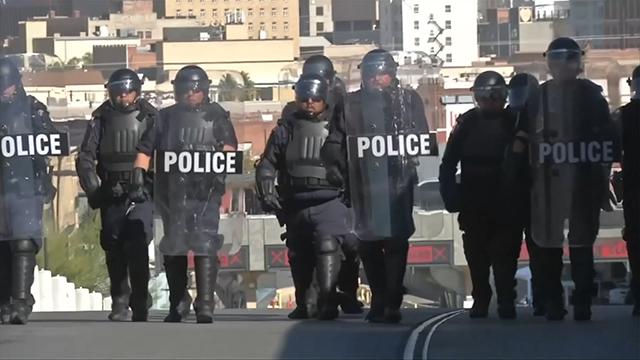
"What we ask of Donald Trump is to put his hand on his conscience," said Lydia's mother. "We are not
delinquents. We want jobs. We are human beings just like him. Let us pass. We have a lot of children here, we are not delinquents, we are people that want to work."
On the day I spent with Lydia, despite the heat and hunger, she never sulked or complained. She was playful with our crew and always smiled. When it was time to leave, I wished her luck. It’s a shame that
someone so young has to experience such hardships and poverty. Trump is right about one thing: these are very tough people. Lydia is one tough little girl.
